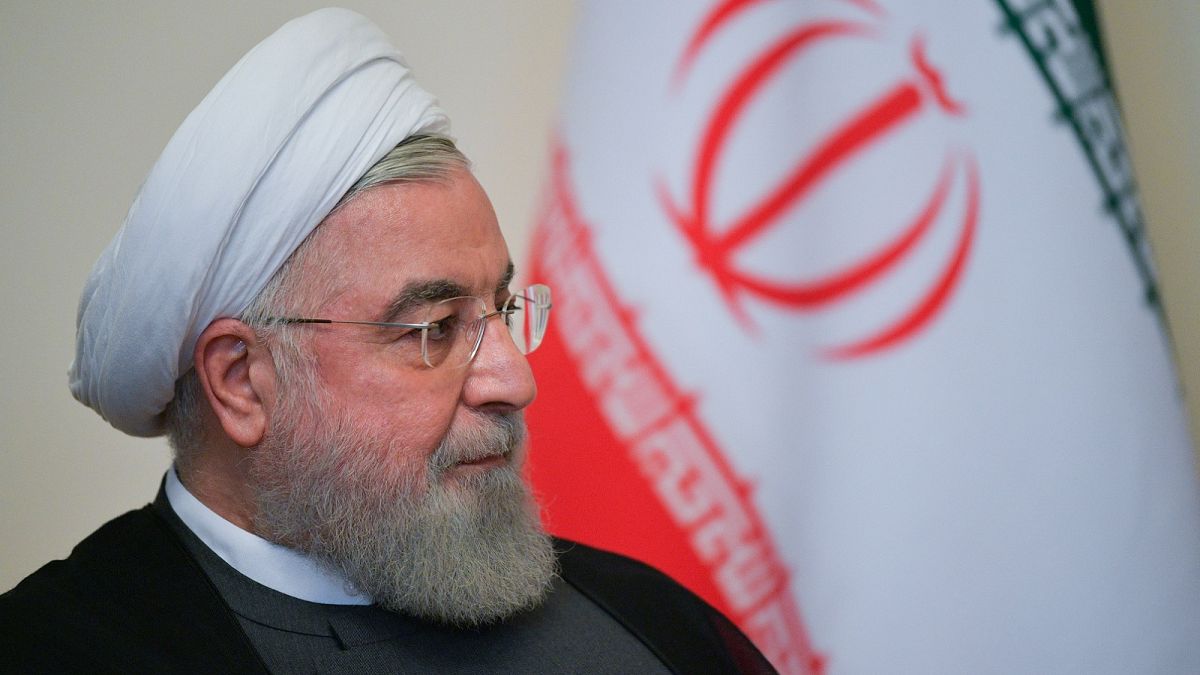If the European Commission - and foreign policy chief Josep Borrell in particular - would have the EU assume a more active role in world affairs, they will be presented with a host of difficult choices, few of them black or white. Take, for example, the question of Iran.
Calls for the European Union to pursue a cohesive, unitary foreign policy are growing, and it is not difficult to understand why.
Member states have traditionally conducted their foreign affairs unilaterally, but for many Europhiles, this seems increasingly untenable in a world of contracting globalisation, geopolitical friction and bellicose nationalism.
Just last year, German chancellor Angela Merkel and French president Emmanuel Macron gave support to the idea of a ‘European security council,’ while the latter even floated the question of creating a “true, European army.” Less ambitiously, others have called on the incoming college of EU Commissioners to take purposeful steps to shore up Europe’s strategic sovereignty.
There are pragmatic reasons for wanting Europe to make the most of its collective strength and not be pushed around by allies and adversaries alike, but idealism is also an important part of the equation. The EU is first and foremost a peace project. And although it was conceived with the idea of achieving peace within its own borders, many would have it play a similar role in the world at large.
But one thing is certain: if the European Commission - and foreign policy chief Josep Borrell in particular - would have the EU assume a more active role in world affairs, they will be presented with a host of difficult choices, few of them black or white. Take, for example, the question of Iran.
Clearly, European leaders have bristled at Trump’s heavy-handed attempt to corral them into an alliance against Tehran. Paris, Berlin and even London (which prizes its “special relationship” with Washington above all else) have remained steadfast in their commitment to the Iran Nuclear Deal, despite considerable pressure from the US to pursue instead a strategy of economic isolation and geopolitical containment.
Yet there is a very real danger that distaste for Donald Trump is blinding European leaders to the realpolitik of the situation. There is a terrible new reality emerging in the Middle East, one which leaves us on the precipice of a multi-state conflict, the consequences of which would be truly devastating.
Having tortured, starved and gassed his own civilians into submission, Assad has won his civil war. That he has done so only through the assistance of Russia and Iran means he is now beholden to those regimes, neither of whom have a benign interest in the region.
Most importantly, by securing a presence in Syria, Iran has opened up a second front against Israel, along with Lebanon, where its proxy, Hezbollah, has been gearing up for another conflict ever since the deadly 2006 Lebanon War. To this end, Tehran has supplied Hezbollah with over 130,000 rockets, which it has recently begun upgrading to an arsenal of precision guided missiles capable of hitting strategic targets behind the Israeli border.
The clashes seen in recent weeks between the Iranian Revolutionary Guard Corps, Hezbollah and the Israeli Defence Forces (IDF) offers a terrifying glimpse into a future where all-out war breaks out between Israel and the cohort of adversaries gathering to its north. Add to this mix Iran’s long-standing connection to Palestinian terror groups and it becomes clear that the Levant is a powder keg ready to blow.
The EU has a moral responsibility to do everything in its power to avert such a cataclysmic conflict. The gamble which European leaders have made thus far is that, by keeping the Iran Nuclear Deal alive, they may do enough to placate Tehran, whose aggressive behaviour is merely an expression of its frustrated ambition to be admitted to the community of respectable nations.
Such an assessment appears deeply misguided. Hostility to Israel is intrinsic to the Islamic Republic of Iran and has been since its conception in 1979. Tehran is very serious about its antipathy to Israel. It is not bluffing. It is not simply pursuing diplomatic leverage with the West. Giving Iran access to international finance will not dissuade it from that which it believes to be its historical mission: the destruction of the Israeli state. Short of wiping Israel off the map, which it has promised to do on many occasions, Iran wants to attain a position of mutually-assured destruction with Jerusalem. Parity in this regard will allow Tehran to pursue small-scale conflicts with Israel, largely through its proxies in Lebanon and Palestine, sure in the knowledge that Jerusalem cannot afford to retaliate against Iran with massive force.
Whichever way you look at it, Josep Borrell, along with other European leaders, faces an incredibly difficult choice when he assumes office on 1 November, especially if his ultimate objective is to establish European strategic sovereignty as a force for good in the world. But as events hasten towards war, inaction is no longer an option for the EU.
Taking sides with President Trump will stick in the craw of many, some of whom still cling to the hope that Iran can be reformed through initiation. However, there is a lingering sense that opening the door to Tehran - while it continues to move its chess pieces closer and closer to Israel - could well be a case of admitting the fox into the hen house in the hope that it turns vegetarian.
- David Ibsen is the President of United Against Nuclear Iran (UANI), a civil society group based in New York that advocates against the Iranian regime.
____________
Are you a recognised expert in your field? At Euronews, we believe all views matter. Contact us at view@euronews.com to send pitches or submissions and be part of the conversation.
